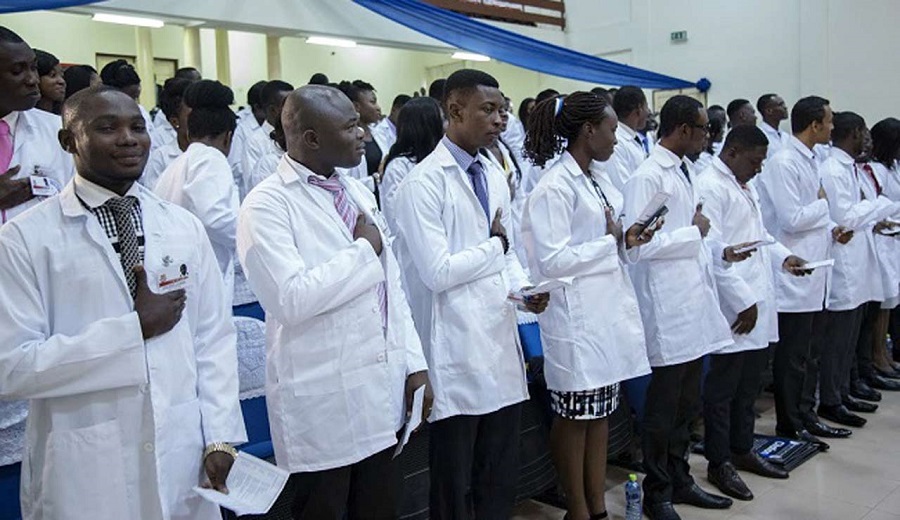Health
How blood group can affect your general health, lifespan

How blood group can affect your general health, lifespan
There are four main blood groups (types of blood) – A, B, AB and O.
Your blood group is determined by the genes you inherit from your parents.
Lifespan
Chances are higher you will ll live longer if you have type O blood.
Experts think your lowered risk of disease in your heart and blood vessels (cardiovascular disease) may be one reason for this.
Fertility
Your blood type can’t predict whether you will get pregnant, but it may play a role.
In one study, women with low numbers of healthy eggs were more likely to have type O blood than any other type.
Heart Disease
There is good news for O blood types. Research shows your risk of coronary heart disease tends to be lower. Experts are not sure why.
Some think it might be because other types are more likely to have higher cholesterol and higher amounts of a protein that’s linked to clotting.
Stomach Cancer
A, AB, and B blood types are more at risk than type O.
Specifically, people with type A blood are more likely to get stomach cancer. Researchers think this might be because H. pylori infection is more common in people with type A blood. This is a bacteria that is usually found in the stomach. It can cause inflammation and ulcers.
Memory
A small study showed that people with memory problems had type AB blood more than any other.
Pancreatic Cancer
Your risk is higher if you’re type A, AB, or B. Molecules in type A and B red blood cells help certain bacteria called H. pylori grow in your gut. It can make you more likely to get pancreatic cancer.
Stress
Stress boosts your body’s level of cortisol, the stress hormone. People with type A blood tend to have more cortisol, anyway. So you may have a harder time dealing with stressful situations.
Malaria
Type O blood may help ward off this disease. You can get malaria when an infected mosquito bites you. The parasite that causes it has a harder time attaching itself to type O blood cells.
Ulcers
Peptic ulcers — painful open sores that crop up in the lining of your stomach or upper intestine — seem to happen more often with blood type O.
Blood Clots
Venous thromboembolism (VTE) is when your blood clots in a deep vein, like the ones in your legs. These clots sometimes move to your lungs. Research shows that people with type A, B, or AB blood are at a higher risk of VTE.
Diabetes
Type 2 diabetes seems to happen more often in people with blood types A and B. Experts aren’t sure why. More research is needed.
Stroke
Your risk for a stroke goes up if you have blood type AB. Doctors think that’s because it’s more likely to clot than other types.
Source: WebMD
Health
Resident Doctors Threaten Fresh Nationwide Strike Over Unimplemented MoU

Resident Doctors Threaten Fresh Nationwide Strike Over Unimplemented MoU
The Nigerian Association of Resident Doctors (NARD) has warned of an imminent return to a nationwide strike, appealing to senior members of the medical profession to intervene as talks with the Federal Government stall.
In a statement issued on Sunday, NARD Secretary-General, Dr Shuaibu Ibrahim, said the association is on the verge of embarking on another Total and Indefinite Comprehensive Strike (TICS 2.0) due to the government’s failure to implement the Memorandum of Understanding (MoU) signed after the suspension of the last industrial action.
“I write to you at a critical moment for Nigeria’s health sector and the medical profession,” Ibrahim said while addressing respected medical elders.
According to him, the looming strike stems from the failure of the Federal Ministry of Health and the Federal Government to honour commitments freely entered into with NARD.
“The Nigerian Association of Resident Doctors stands on the brink of another nationwide industrial action, TICS 2.0, triggered by the failure of the Federal Ministry of Health and the Federal Government to honour the MoU,” he stated.
Ibrahim described the situation as distressing, noting that it reflects a breakdown of trust between the government and medical professionals. He said resident doctors had exercised restraint for months by suspending strikes and extending ultimatums without receiving any meaningful response.
READ ALSO:
- Zelenskyy Rejects Russia’s Claim of Drone Attack on Putin’s Residence, Warns of Escalation
- Amotekun Arrests 39 Suspected Terrorists Fleeing Sokoto After US Airstrikes
- Nigeria vs Uganda: Key Super Eagles Players Risk Suspension Ahead of AFCON Clash
He explained that after suspending a warning strike, NARD issued a two-week ultimatum, which elapsed without response, before extending it by 30 days and later by another seven days, all without results.
“Consequently, TICS 1.0 commenced, prompting limited engagement that culminated in the signing of an MoU with clear timelines,” he said.
However, Ibrahim noted that 31 days after the signing of the MoU, there has been no visible or substantive progress in its implementation.
“Resident doctors should not be blamed if industrial action resumes, having repeatedly demonstrated patience while government obligations remain unmet,” he added.
The NARD scribe said resident doctors, who form the backbone of service delivery in Nigeria’s tertiary hospitals, remain overworked and demoralised, warning that failure to respect agreements sends a dangerous signal to professionals in the health sector.
“When agreements addressing our welfare endorsed by the Federal Government are treated with levity, it sends a dangerous signal that sacrifice, dialogue and professionalism no longer count,” he said.
He therefore appealed to respected medical elders to prevail on the Federal Ministry of Health and the Federal Government to urgently implement the MoU.
The warning comes weeks after NARD suspended a 29-day nationwide strike that began on November 1, 2025, following an Extraordinary National Executive Council meeting. About 11,000 resident doctors across 91 teaching hospitals withdrew services during the strike, disrupting healthcare delivery nationwide.
The strike was suspended after the signing of an MoU addressing issues such as the reinstatement of Lokoja doctors, release of the Professional Allowance Table, payment of promotion and salary arrears, implementation of specialist allowance, and resolution of entry-level and membership certificate concerns.
NARD had warned that failure to meet the agreed timelines would result in a resumption of industrial action.
Resident Doctors Threaten Fresh Nationwide Strike Over Unimplemented MoU
Health
Brain Drain Deepens as 16,156 Nigerian Nurses Secure UK Licences Since 2017

Brain Drain Deepens as 16,156 Nigerian Nurses Secure UK Licences Since 2017
No fewer than 16,156 Nigerian-trained nurses and midwives have been licensed to practise in the United Kingdom between 2017 and September 30, 2025, according to latest data from the UK Nursing and Midwifery Council (NMC).
The figure, obtained from the NMC register, underscores the deepening brain drain in Nigeria’s healthcare sector, popularly referred to as “japa”, as skilled professionals continue to migrate in search of better pay, working conditions and career opportunities.
In an email response, the NMC, which regulates nurses and midwives in the UK, confirmed:
“As of 30 September 2025, there were 16,156 nurses on the register who were educated in Nigeria.”
The data shows a steady rise in migration. As of March 31, 2025, the number stood at 15,421, representing a 4.8 per cent increase within six months. Nigeria ranked as the third-highest source of foreign-trained nurses in the UK, behind India and the Philippines, according to the NMC’s March 2025 report.
READ ALSO:
- Sheikh Gumi Drags Two to Court Over Alleged Fake Threat Against Defence Minister
- Lagos Fire Service Battles Blaze at 25-Storey Great Nigeria Insurance House
- AFCON 2025: Tanzania Coach Gamondi Praises Players Despite 2–1 Defeat to Nigeria
Although international recruitment into the UK slowed across major source countries, including Nigeria, India and the Philippines, the report noted that the increase in UK-trained nurses has been too slow to offset the decline, resulting in slower overall growth on the NMC register.
The impact of this migration is being strongly felt at home. The 2025 Nigeria Health Statistics report, released by the Federal Ministry of Health and Social Welfare, revealed that 43,221 healthcare professionals—including doctors, nurses, pharmacists and medical laboratory scientists—left Nigeria between 2023 and 2024.
Specifically, the report showed that over 23,000 Nigerian nurses and midwives migrated abroad in 2024 alone. Their preferred destinations were the United States (8,613), United Kingdom (7,463), Canada (5,603), Saudi Arabia (1,231) and Ireland (989).
Highlighting the scale of the crisis, the Minister of State for Health and Social Welfare, Dr. Iziaq Salako, said Nigeria’s doctor-to-population ratio stands at 1:5,000, far below the World Health Organisation (WHO) recommendation of 1:600, while the nurse-to-population ratio is about 1:2,000, compared to the recommended 1:300.
Salako said the Federal Government is working to address the shortfall through strengthening primary healthcare, expanding the Health Workforce Registry, increasing training quotas, and implementing retention policies aimed at slowing the tide of healthcare migration.
Brain Drain Deepens as 16,156 Nigerian Nurses Secure UK Licences Since 2017
Health
NAFDAC Assures Nigerians: Locally Made Indomie Noodles Safe Amid French Recall Alert

NAFDAC Assures Nigerians: Locally Made Indomie Noodles Safe Amid French Recall Alert
The National Agency for Food and Drug Administration and Control (NAFDAC) has reassured the public that Indomie Noodles Vegetable Flavour is not registered or sold in Nigeria, following a recall alert issued by French health authorities.
In a press release on Sunday, NAFDAC clarified that the recall, initiated by Rappel Conso, France’s official consumer safety platform, involved undeclared allergens—milk and eggs—in the Vegetable Flavour variant, posing risks to individuals with allergies or intolerances. The agency emphasized that the product does not originate from Nigeria and is not approved for sale.
NAFDAC Director-General, Professor Mojisola Christianah Adeyeye, stated:
“The Indomie noodles vegetable flavour in question is not registered with NAFDAC for sale in Nigeria.”
READ ALSO:
- US, Nigeria Sign $5.1bn Health Pact to Expand Faith-Based Hospitals
- Oyo town agog as Alaafin Confers ‘Okanlomo of Yorubaland’ Title on Seyi Tinubu
- Akpabio Heads to Supreme Court Over Appeal Court Ruling on Natasha’s Suspension
The agency highlighted that noodle imports are on the Federal Government’s Import Prohibition List, making it illegal to bring such products into the country. To safeguard public health, NAFDAC has intensified nationwide surveillance, directing zonal directors, state coordinators, and Ports Inspection authorities to prevent any circulation of the recalled product.
The agency further assured that all Indomie noodles produced in Nigeria are locally manufactured, strictly regulated, and comply with Good Manufacturing Practice (GMP) standards. Consumers are advised to report any suspected sale or adverse reactions via NAFDAC’s toll-free number 0800-162-3322 or its e-reporting platforms.
In a separate statement, Indomie Nigeria confirmed that the company does not manufacture, import, or sell the Vegetable Flavour variant in Nigeria, stressing that all locally made Indomie noodles are safe for consumption. The company warned against purchasing noodles with unfamiliar packaging and urged reliance on official sources for verified information.
Both NAFDAC and Indomie Nigeria appealed for public calm, reiterating that Nigerian-produced Indomie noodles remain safe, unaffected, and compliant with regulatory standards.
NAFDAC Assures Nigerians: Locally Made Indomie Noodles Safe Amid French Recall Alert
-

 metro3 days ago
metro3 days agoIbadan Explosion: Fayose Releases Documents, Claims Makinde Got ₦50bn from FG
-

 metro3 days ago
metro3 days agoPlateau Kidnappers Demand ₦1.5m Each as 28 Muslim Travellers Remain in Captivity
-

 metro2 days ago
metro2 days agoNiger Delta Crackdown: Army Seizes ₦150m Stolen Oil, Arrests 19 Suspects
-

 Sports2 days ago
Sports2 days agoAnthony Joshua injured as two die in fatal Lagos-Ibadan Expressway crash (plus photos)
-

 Sports2 days ago
Sports2 days agoCristiano Ronaldo Wins Best Middle East Player at 2025 Globe Soccer Awards in Dubai
-

 metro1 day ago
metro1 day agoOgun Man Arrested After ₦4,000 Debt Dispute Claims Stepbrother’s Life
-

 metro1 day ago
metro1 day agoMrs. Regina Akume Urges SGF George Akume to Return to Christianity Amid New Marriage
-

 metro3 days ago
metro3 days agoBello Turji Not Killed in US Airstrikes, Security Expert Debunks Reports



